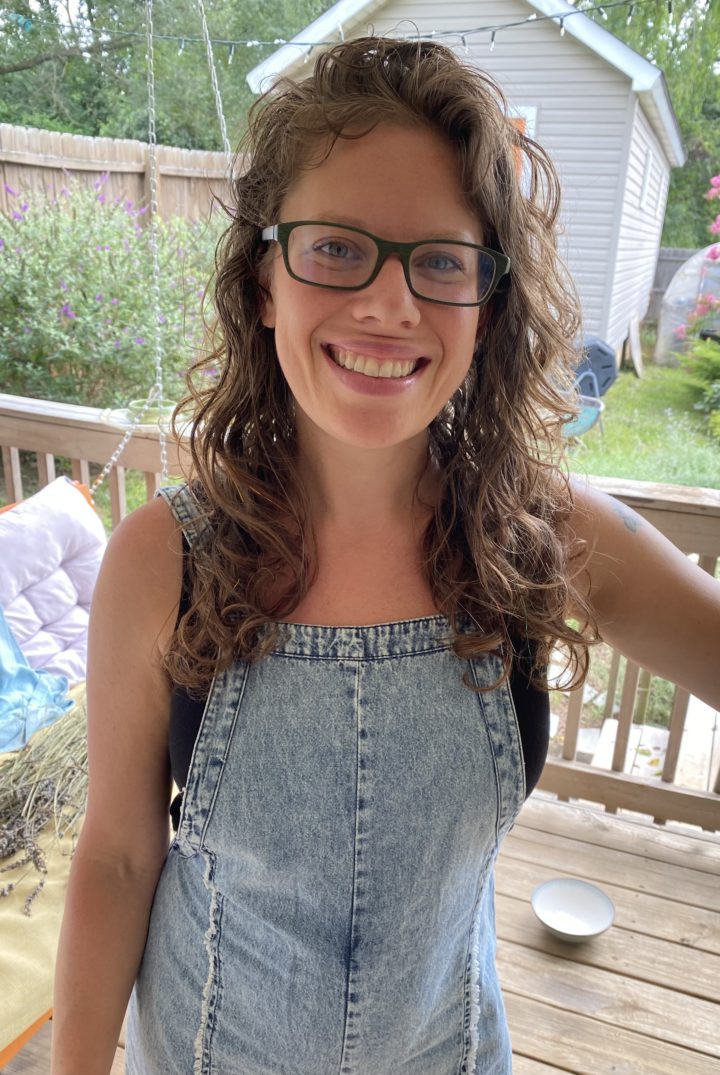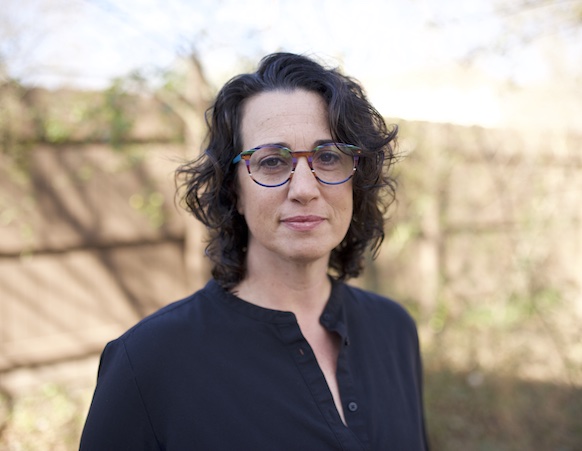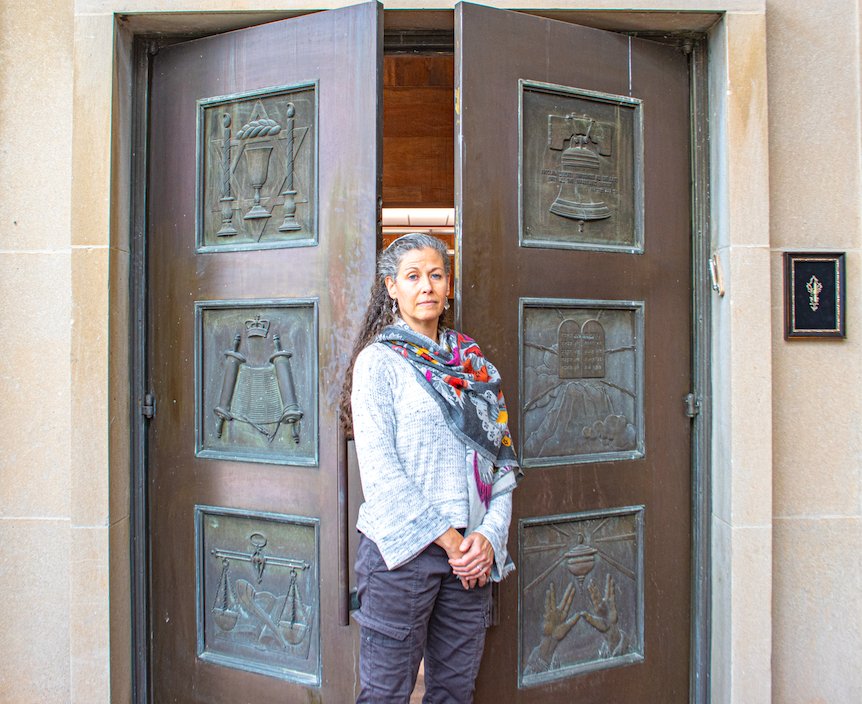Editor’s note: This article was reported and written before Tropical Storm Helene. Xpress added an update to include slurs directed at Jewish people in the wake of the storm.
For the past year, residents have seen visible displays of the disparate views of the Israel-Hamas war. What started as civil protests, including appeals to Asheville City Council, banners and demonstrations, have devolved into more aggressive incidents: a swastika painted on a restaurant window, a melee at the West Asheville Public Library and more recently, defaced campaign signs.
While the Oct. 7, 2023, attack on Israel shone a light on the Middle East conflict and its complexity, disagreements within the Jewish community and simmering antisemitism in Western North Carolina are nothing new.
History of hate
Since 2019, the Asheville Police Department has reported 12 anti-religion hate crimes, resulting in 15 charges, all of them anti-Jewish. Three occurred this year, one in April and two in June. These figures do not reflect incidents where charges were not filed.
In September, signs for Caleb Rudow, the candidate running to unseat U.S. Rep. Chuck Edwards in District 11, were defaced with a Star of David in the Kenilworth neighborhood. Nearby signs for Kamala Harris/Tim Walz were vandalized in the same manner.
In response, Rudow offered the following statement:
“Over the past few months, I’ve witnessed similar acts of vandalism and antisemitism — public signs being defaced, including those I’ve personally tried to clean up. Let me be clear: These acts of hate are painful. They are designed to intimidate and spread fear. But I will not be deterred. Not as your representative. Not as your candidate. Not as your neighbor. And most certainly not as a proud Jewish American.”
Rabbi Batsheva H. Meiri of Congregation Beth HaTephila, tells Xpress two bomb threats (on Dec. 18 and Jan. 3) were made against the synagogue.
Nationally, an Anti-Defamation League (ADL) survey showed that for the first time, younger Americans more readily accept classic antisemitic tropes — including allegations of dual loyalty and conspiracies about Jewish control of the media and Wall Street — than older generations.
The ADL also reported a rash of extremist groups that depicted the Federal Emergency Management Agency (FEMA) as being more concerned with Israel than helping after Hurricane Helene, one group even suggesting that Jewish people “directed” the hurricane to destroy America. Some posts singled out Asheville Mayor Esther Manheimer.
“How they’re going at me is not surprising because [U.S. Rep.] Marjorie Taylor Greene has made this inference that Jews control the weather, and I’m a Jewish mayor and somehow there’s a correlation,” Manheimer told the Asheville Watchdog.
Meiri says antisemitism has been bubbling in Asheville and Western North Carolina for a long time.
“We’ve tightened our security [at the synagogue],” Meiri notes. But she adds that security for local Jews and Jewish institutions has been tight long before Oct. 7 and long before the Pittsburgh Tree of Life synagogue shooting on Oct. 27, 2018. That tragedy left 11 people dead and seven injured.
“We haven’t had an unlocked building, ever,” Meiri says, who became her congregation’s rabbi in 2008.
According to the Goldring/Woldenberg Institute of Southern Jewish Life (ISJL), many Jews settled in Asheville in the 1880s. In 1891, 27 Jewish men formed Congregation Beth HaTephila, literally “House of Prayer.” Bikur Cholim, later known as Beth Israel Congregation, was formed by 1899.

In 1932, the Silver Shirts, an antisemitic, pro-Nazi organization founded its headquarters in Asheville on Charlotte Street. Eight years later, the paramilitary organization gained an unlikely neighbor — the Asheville Jewish Community Center (JCC).
“[Charlotte Street’s] two synagogues … were meeting the religious needs of the Jewish community, but a group of Jewish families were looking for a place to meet their social and cultural needs,” says Ashley Lasher, the JCC’s executive director. (The Silver Shirts dissolved in 1941.)
In the 1960s and ’70s, Xpress contributor Jerry Sternberg writes, Jews were banned from Asheville country clubs, where many business relationships were cemented on the golf course or in the club bar.
Viewed through the lens of time, that discrimination seems simple and easy to understand. Not so today.
Terms of disagreement
Even within the Jewish community, there is a dispute over what is antisemitic. Take, for example, the skirmish at the library. On June 29, David Moritz, Monica Buckley and Bob Campbell attended and livestreamed the seminar “Strategic Lessons from the Palestinian Resistance,” presented as part of the fifth annual Another Carolina Anarchist Bookfair (ACAB). Attendees took exception to the livestream and tried to block their view. Then the pushing began.
One side says people are using the Israel-Hamas war conflict to unleash long-simmering hatred against Jews. The other side, which includes pro-Palestinian activists as well as several Jews, says opponents are weaponizing antisemitism to target business owners and activists who do not support Zionism.
Moritz, a self-described Zionist, defines the term as someone who believes Israel has a right to exist. “I do consider myself someone who stands up to bullies,” says Moritz, the son and grandson of Holocaust survivors. After witnessing Asheville’s pro-Palestinian protests and presentations before City Council by pro-Palestinian peace activists, Moritz has consistently presented his version of Middle East history and events to Council.
“A Zionist is someone who believes in Israel’s right to exist,” writes Jennifer, an activist who launched an Instagram page where she deems which local businesses are safe for Jewish people. (She asked that her last name be withheld.)
Peace activist Nicole Lopez, who has asked City Council several times to adopt a Gaza cease-fire resolution, even after MayorManheimersaid Council would not consider it, questions the notion that Israel — or any nation — has a right to exist.
“Do I believe that the United States has the divine right to exist? No. Do I think any nation has the divine right to exist? Personally, that is not within my belief system,” Lopez says.
“Moritz and Buckley [are] trying to conflate Zionism, which is a nationalist political ideology dating back to the 19th century, with Judaism, a faith dating back thousands of years,” emails Matthew Maizels of the local chapter of progressive Jewish anti-Zionist organization Jewish Voices for Peace.
So what’s antisemitic?
“The most simple definition of antisemitism is ‘anti-Jewish behavior or expression,’” says Becca Mericle, chair of the Jewish Community Relations Council (JCRC) of Greater Asheville.
Mericle notes that the JCRC, which combats bigotry in schools around greater Asheville, lists several definitions of antisemitism on its website, including the Holocaust Remembrance Alliance’s definition.
“Antisemitism is a certain perception of Jews, which may be expressed as hatred toward Jews. Rhetorical and physical manifestations of antisemitism are directed toward Jewish or non-Jewish individuals and/or their property, toward Jewish community institutions and religious facilities,” reads the definition.
In June, the N.C. General Assembly passed House Bill 942, known as the “Shalom Act,” which adopts HRA’s definition of antisemitism into state law.
Another phrase used by pro-Palestinan groups that triggers a strong response is “from the river to the sea.”

“The phrase ‘from the river to the sea’ is considered threatening by some, particularly within the Jewish community, because it is often interpreted as a call for the elimination of the state of Israel, [but] for many who use the phrase, it represents a call for freedom, justice and equality for all people living in the region, including both Palestinians and Israelis,” says Abby Lublin, the executive director of Carolina Jews for Justice.
Several pro-Palestinian activists, two of them Jewish, have condemned the confrontational tactics employed by Moritz, Buckley and Jennifer.
“Monica gets as close as possible with a sign or a flag in your face while Jennifer films. If you move the flag, they start screaming assault,” says Melissa Weiss, owner of Melissa Weiss Pottery. Weiss is also Jewish and has participated in pro-Palestinian protests.
Xpress reached out to individuals who appeared on Jennifer’s “safe for Jewish people” list. Fifteen people spoke with Xpress, six of them business owners. All questioned Jennifer’s motives.
“What she really is doing is trying to find out which businesses are Zionists and support what Israel is doing in regards to the war in Gaza,” wrote one business owner who requested anonymity. Other business owners say their pushback at Mortiz, Buckley and Jennifer is due not to antisemitism but what they view as bullying.
Bringing it down a notch
Lublin says it’s important to understand the trauma of life experiences that may underlie some Jews’ staunch Zionism and attachment to the state of Israel.
“They may have memories or lived experiences of Jews being unsafe in the world, [such as] Holocaust trauma, and so tie their sense of safety to Israel as a Jewish state,” Lublin says.
“Being a part of the Jewish community, I can see my friends and family struggle to separate valid, important criticism and condemnation of the war versus attacks on Jews for being Jewish, for being believers in the state of Israel and for wanting the return of the hostages,” writes Mayor Manheimer in an email to Xpress.
Mericle, who teaches English and journalism at Asheville High School, says JCRC strives to build greater understanding between Jews and non-Jews at area schools. In cases of antisemitism in the classroom, JCRC intervenes and mediates, bringing parents, teachers and administrators together to get a satisfactory resolution.
Bringing diverse people together is also a key strategy employed by Carolina Jews for Justice, says Lisa Forehand, the Asheville-based statewide organizer for the coalition.
“[CJJ] is a big tent, and discussions around Israel and Palestine amongst Jews are eternal, although clearly heightened. We can still come together and work on reproductive justice, voter engagement or climate change, regardless of [our] feelings about Israel and Palestine. That’s been a unifying force,” Forehand says.
Lubin notes that she grew up with the worldview that Jews were simply hated and would always be so. It was through social justice work with CJJ that she began to see that Jewish people’s struggles were tied to the struggles of people around the world to attain dignity and justice.
Similarly, Lasher notes that the Jewish Community Center was launched to build an inclusive community. That community, which numbers 6,000 members, extends to WNC’s non-Jewish population, who are welcome at the community center.
“In connecting non-Jewish people to Jewish tradition and culture and spaces and people, we are demystifying who Jews are. We are offering positive, fulfilling engagement that has no intention of anything other than education, connection and relationship building. It’s just building joy,” Lasher says.
Rudow also stresses that dissension and hatred can be overcome by communities coming together.
“Let’s not lose sight of what this really shows us,” Rudow writes. “It’s a reminder of something we’ve long understood: Even as some would like to dismiss conversations about identity, those of us with different identities still face real threats. And we cannot — and will not — be silenced through fear. We won’t be intimidated into submission. So, to everyone who has ever felt different, to everyone who has ever been targeted for who they are, I say this: Stand tall in your identity. Wear it as a badge of honor. They can’t have our fear. They can’t take our pride. And this battle for the soul of our nation — it’s not one they’re going to win. We’re here. We’re proud. And we’re not going back.”




remember when Jews were safe on college campi ?
I agree with the author of this article when he writes that anti-semitism is nothing new. It’s important to discern what are acts or expressions of hate toward a person because of their ethnicity or religion from political speech which expresses perhaps unpopular, but valid views. This article seems to lump together, expressions of ‘anti-Jewish’ feeling such as swastika painting or defacing campaign signs with sincere expressions of disagreement with U.S. foreign policy (military and weapons deliveries, ‘diplomatic’ and political cover) that is resulting in horrific and ongoing suffering for the Palestinian people and in wider war in the region. The journalist has centered “Jewish trauma” both historically and currently. Those including myself who have supported a local ceasefire resolution to stop the killing, who have participated in public demonstrations, who have met with local and regional leaders for an end to U.S. enabling of the plausible genocide are NOT the people painting swastikas on restaurants or campaign signs. As a Jewish person, I shudder when I see such expressions of real hatred. Perhaps the author could have written a companion article or integrated into this article, the very real racism in our community toward Muslims, Palestinians and Arabs which has been expressed by some of the people named in your article. Many who aren’t given a voice in this article, are experiencing the trauma of family members being killed, injured, starving or displaced in Gaza and Lebanon. It is beyond time to separate out legitimate criticism of the U.S.’ and Israel’s actions from real ‘anti-semitic’ behavior and speech expressed predominately by white supremacists. The people I know who are advocates for an end to the Palestinian genocide are the real human rights defenders…human rights for all . Whose suffering matters in this community and whose suffering is ignored?
Hi. Nicole Lopez here. I was the person quoted in this article about Israel’s right to exist. While I stand by my words, I’m feeling very blindsided by how I was quoted since I approved a completely different set of quotes for publication. I thought I was going to be quoted about my experiences with anti-genocide activism in Asheville and about how the conflation of pro-Palestinian activism with anti-Semitism provides cover for white supremacist actors. Instead I was quoted about my thoughts about the rights of nations to exist.
Had I had the chance to approve that quote, I would have requested edits or a reframe. To be clear, I stand by my words and beliefs — I don’t think nations with man-made borders have a divine right to exist and I certainly don’t prioritize the rights of nations over the human rights of the PEOPLE that make up those nations. But my real answer to that question is that I think centering the question of Israel’s right to exist serves as a distraction from human rights abuses. Israel exists as a nation. Palestine does not. Israel’s actions as a nation deny and prevent Palestine’s existence as a nation.
In fact, I even sent the author a follow up email after our interview in July to clarify what I was trying to say when talking about the right to exist question, since after the fact, I was worried about having validated the very question with my answer. Here’s the clarification I sent Pat:
“I wanted to add some thoughts I was struggling to articulate earlier to your question as to whether I am protesting Israel’s right to exist. I am protesting the genocide of Palestinians. I think that the “right to exist” question is a distraction away from the fact that Israel is denying, subjugating, and killing Palestinian existence and has been since its inception as it continually expands its borders through settlements, forced evictions, and land seizures. And I feel remiss in not stating that in our interview and centering the current death toll and human impact in Gaza and Palestine right now. The day we spoke was the 293rd day of Israel’s genocide of Palestinians in Gaza and the official direct death toll is 39,738 people. This is a conservative estimate that does not include the tens of thousands of people trapped under the rubble or indirect deaths*, which could be 3-15 times the direct toll.
Does Palestine have the right to exist?
Do Palestinians have the right to exist? Do they get to be civilians?
Does Israel have the right to exist in its current form of apartheid, occupation, and blockade?
Does Israel have the right to exist at the expense of the violent displacement, subjugation, or murder of the Palestinian people?
It bears noting that South Africa continued to exist after apartheid.”
Note — since our interview the official direct death toll of Palestinians in Gaza has risen to 44,126 people, with a conservative estimate of the REAL death toll at over 200,000 people https://dataactivists.org/estimating_death_toll_of_war_on_gaza/. We should be able to speak honestly and openly about this profound and unnecessary loss of human life and how our tax dollars are used to fund it. Israel is a nation state with a military and with policies and is not beyond criticism and reproach. Criticizing those policies and military actions (and our country’s support and funding of those policies) is not the same thing as bigotry against and persecution of Jewish people.
I truly believe that none of us are free until all of us are free and that our freedoms are bound up in one another’s. I yearn for a world where ALL people are truly safe and free, and I will keep showing up to advocate for that as much as I can with the time I have on this earth.